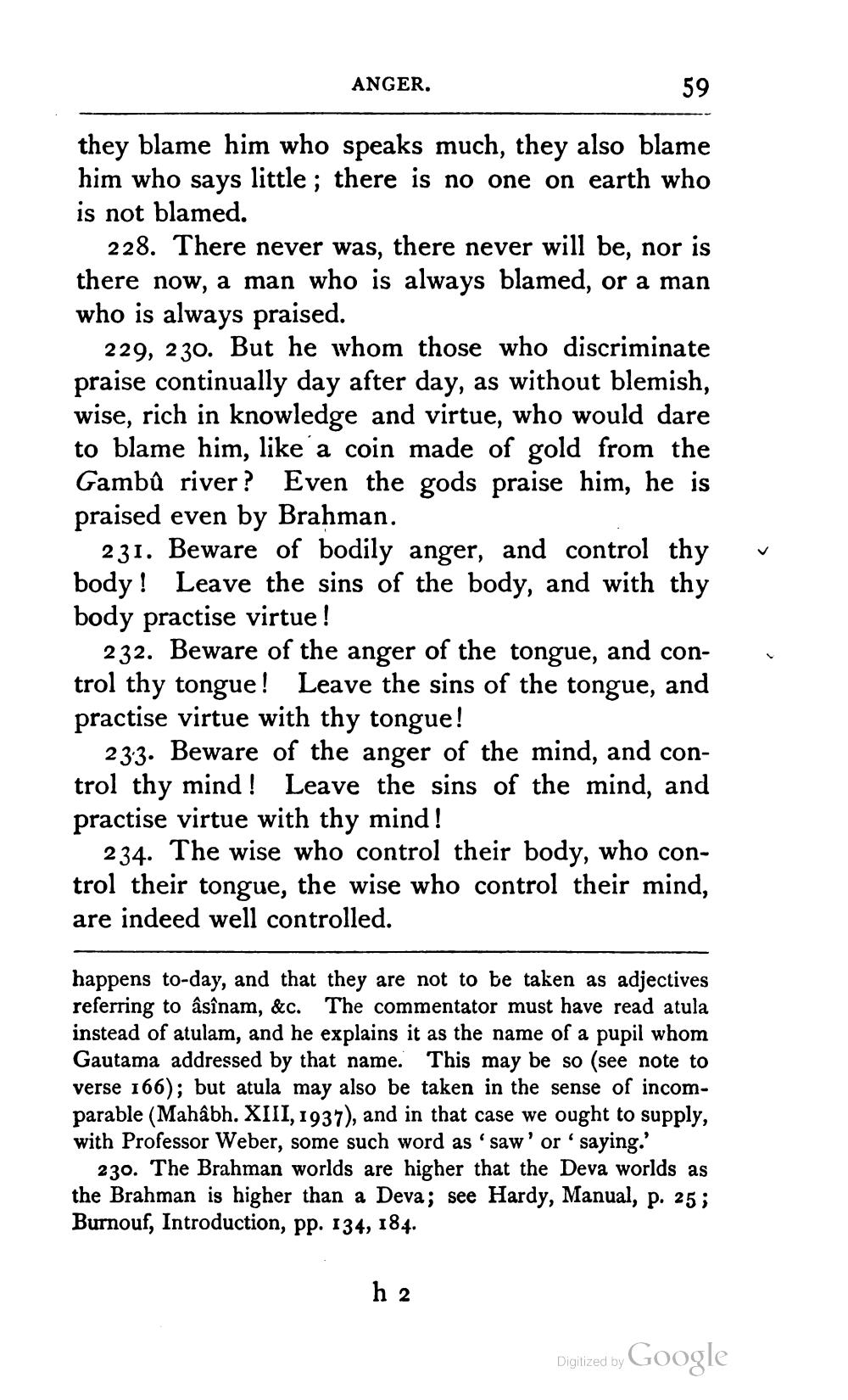________________
ANGER.
they blame him who speaks much, they also blame him who says little ; there is no one on earth who is not blamed.
228. There never was, there never will be, nor is there now, a man who is always blamed, or a man who is always praised.
229, 230. But he whom those who discriminate praise continually day after day, as without blemish, wise, rich in knowledge and virtue, who would dare to blame him, like a coin made of gold from the Gambû river ? Even the gods praise him, he is praised even by Brahman.
231. Beware of bodily anger, and control thy body! Leave the sins of the body, and with thy body practise virtue!
232. Beware of the anger of the tongue, and control thy tongue! Leave the sins of the tongue, and practise virtue with thy tongue!
23:3. Beware of the anger of the mind, and control thy mind! Leave the sins of the mind, and practise virtue with thy mind!
234. The wise who control their body, who control their tongue, the wise who control their mind, are indeed well controlled.
happens to-day, and that they are not to be taken as adjectives referring to âsînam, &c. The commentator must have read atula instead of atulam, and he explains it as the name of a pupil whom Gautama addressed by that name. This may be so (see note to verse 166); but atula may also be taken in the sense of incomparable (Mahâbh. XIII, 1937), and in that case we ought to supply, with Professor Weber, some such word as 'saw' or 'saying.'
230. The Brahman worlds are higher that the Deva worlds as the Brahman is higher than a Deva; see Hardy, Manual, p. 25; Burnouf, Introduction, pp. 134, 184.
h 2
Digitized by Google




